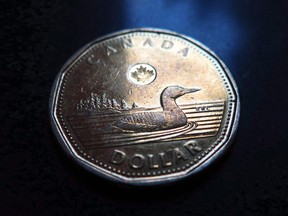Canada promises to deploy more resources to Canada-U.S. border
Article content
Prime Minister Justin Trudeau says Canada had secured a thirty-day pause on tariffs threatened by U.S. President Donald Trump after promising to deploy more resources to the Canada-U.S. border.
Article content
Article content
“I just had a good call with President Trump. Canada is implementing our $1.3 billion border plan — reinforcing the border with new choppers, technology and personnel, enhanced coordination with our American partners, and increased resources to stop the flow of fentanyl,” Trudeau said in a post on social media site X. “Nearly 10,000 frontline personnel are and will be working on protecting the border.”
“Proposed tariffs will be paused for at least 30 days while we work together,” Trudeau said.
Advertisement 2
Article content
Canada has also promised to appoint a “fentanyl czar” and ensure 24/7 supervision of the border, in addition to launching a Canada- U.S. joint strike force to “combat organized crime, fentanyl and money laundering.”
Earlier in the day, Trump announced a month-long delay on tariffs against Mexico, after Mexican President Claudia Sheinbaum agreed to send 10,000 Mexican national guard troops to the U.S.-Mexico border.
“These soldiers will be specifically designated to stop the flow of fentanyl, and illegal migrants into our country,” said Trump, in a post to social media.
“We further agreed to immediately pause the anticipated tariffs for a one-month period during which we will have negotiations headed by Secretary of State Marco Rubio, Secretary of Treasury Scott Bessent, and Secretary of Commerce Howard Lutnick, and high-level representatives of Mexico.”
On Saturday, Trump announced 25-per-cent tariffs on all Mexican and Canadian goods, 10 per cent tariffs on Canadian energy and a 10 per cent tariff on all Chinese goods, which were due to come into effect at 12:01 a.m. Tuesday morning. Trump cited the border crisis with Mexico and Canada and the trafficking of fentanyl as reasons for the trade action in North America. In response, Mexico vowed retaliatory tariffs and Canada promised a 25-per-cent retaliatory tariff on $155 billion of U.S. goods.
Article content
Advertisement 3
Article content
Markets were volatile Monday, with the Dow Jones industrial Average initially sliding over 500 points and global markets also taking a hit, before rebounding on the news the Mexico tariffs would be delayed.
The Mexican peso swung sharply into positive territory, reversing earlier losses to trade 0.3 per cent higher Monday morning.
The Canadian dollar also trimmed its declines to trade at 68.54 cents U.S. against the greenback.
Earlier in the day, Trudeau and Trump spoke with each other. In a post to social media following the conversation, Trump mused about the lack of market access U.S. banks have to the Canadian banking sector.
“Canada doesn’t even allow U.S. banks to open or do business there,” said Trump, in a post on social media. “What’s that all about? Many such things, but it’s also a DRUG WAR, and hundreds of thousands of people have died in the U.S. from drugs pouring through the Borders of Mexico and Canada.”
Economists have been revising their forecasts for the Canada economy since the tariffs were announced on Saturday. Canadian Bank of Imperial Commerce outlined a scenario in which real GDP would fall five percentage points below what was initially projected by the end of 2026. The Bank of Canada said last week that a protracted trade war would lead to a potential three per cent hit to Canada’s GPP.
Advertisement 4
Article content
Some Republican lawmakers pushed back against the tariffs, with Republican Iowa Senator Chuck Grassley asking for exemptions on behalf of American farmers.
“Biden inflation increased the input cost to farming by 20 per cent including particularly high prices on fertilizer,” he said, in a post on X on Monday. “So I plead with President Trump to exempt potash from the tariff because family farmers get most of our potash from Canada.”
On Saturday,Maine Senator Susan Collins highlighted how integrated her state’s economy is with the Canadian economy.
“Certain tariffs will impose a significant burden on many families, manufacturers, the forest products industry, small businesses, lobstermen, and agricultural producers,” she said, in a post on X. “For example, 95 per cent of the heating oil used by most Mainers to heat their homes comes from refineries in Canada.”
The U.S. Chamber of Commerce issued a statement warning of the potential costs of the tariffs on American consumers.
“The President is right to focus on major problems like our broken border and the scourge of fentanyl, but the imposition of tariffs under IEEPA is unprecedented, won’t solve these problems, and will only raise prices for American families and upend supply chains,” said senior vice-president John Murphy, on Saturday.
Advertisement 5
Article content
Canada had planned to roll out its initial phase of retaliatory tariffs on Tuesday, levying a 25-per-cent tax on $30 billion of mostly U.S. consumer goods. The full list was released by Finance Canada on Sunday and included poultry, grains, alcohol, fruits, vegetables and soaps.
Recommended from Editorial
-

Canada to slap 25% tariffs on $155 billion in U.S. goods
-

A 10% tariff on Canadian energy is coming. What happens now?
University of Calgary Professor Trevor Tombe had run initial calculations on Canada’s first wave of retaliatory taxes, outlining which U.S. states would be most hard hit.
“The first $30 billion affects Wisconsin more than any other state, about 0.5 per cent of their GDP is affected by Canada’s retaliation,” said Tombe. “The next up is Idaho.”
• Email: jgowling@postmedia.com
Bookmark our website and support our journalism: Don’t miss the business news you need to know — add financialpost.com to your bookmarks and sign up for our newsletters here.
Article content
Canada secures 30-day pause on tariffs threatened by Trump
2025-02-03 15:57:24





